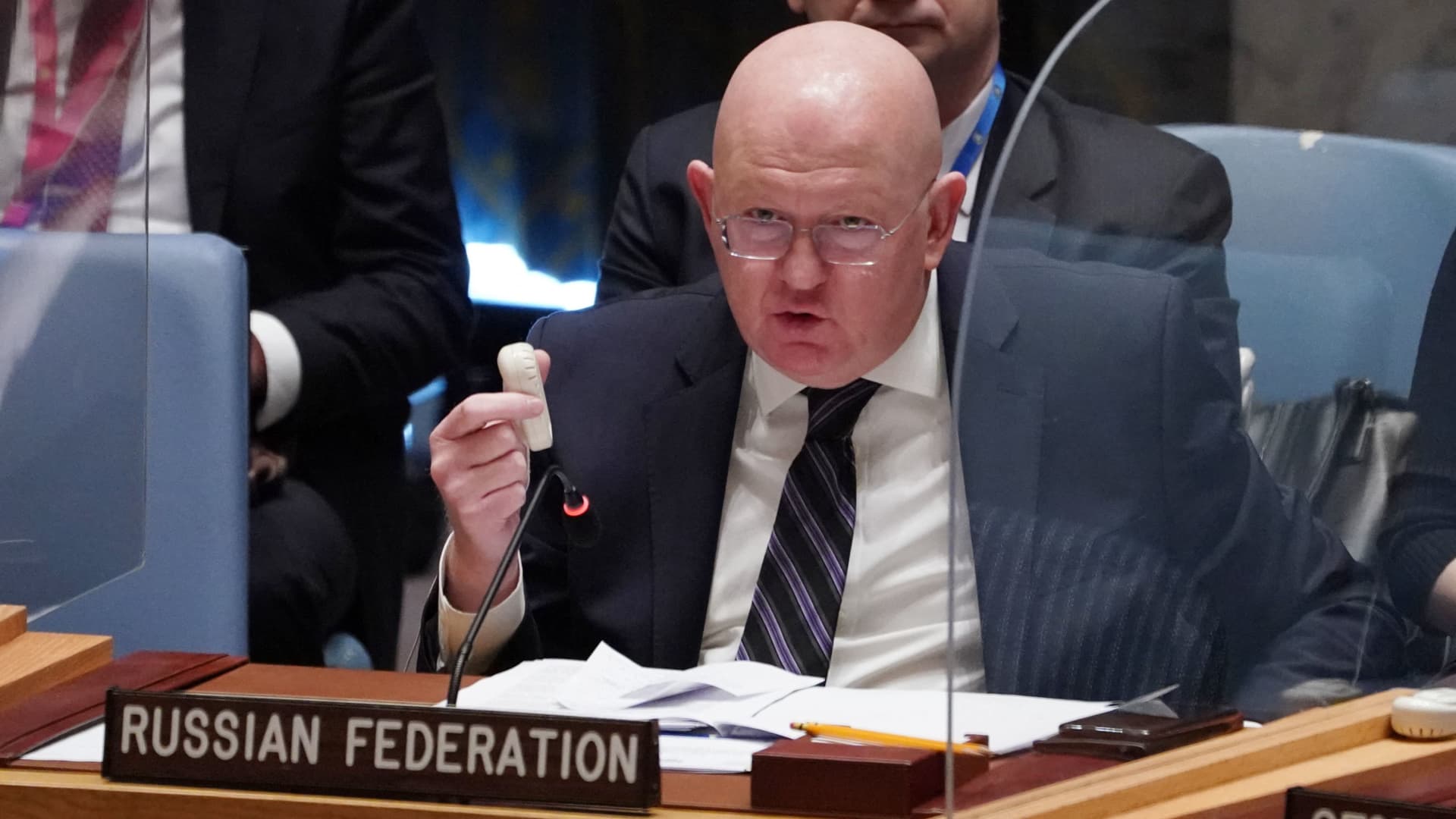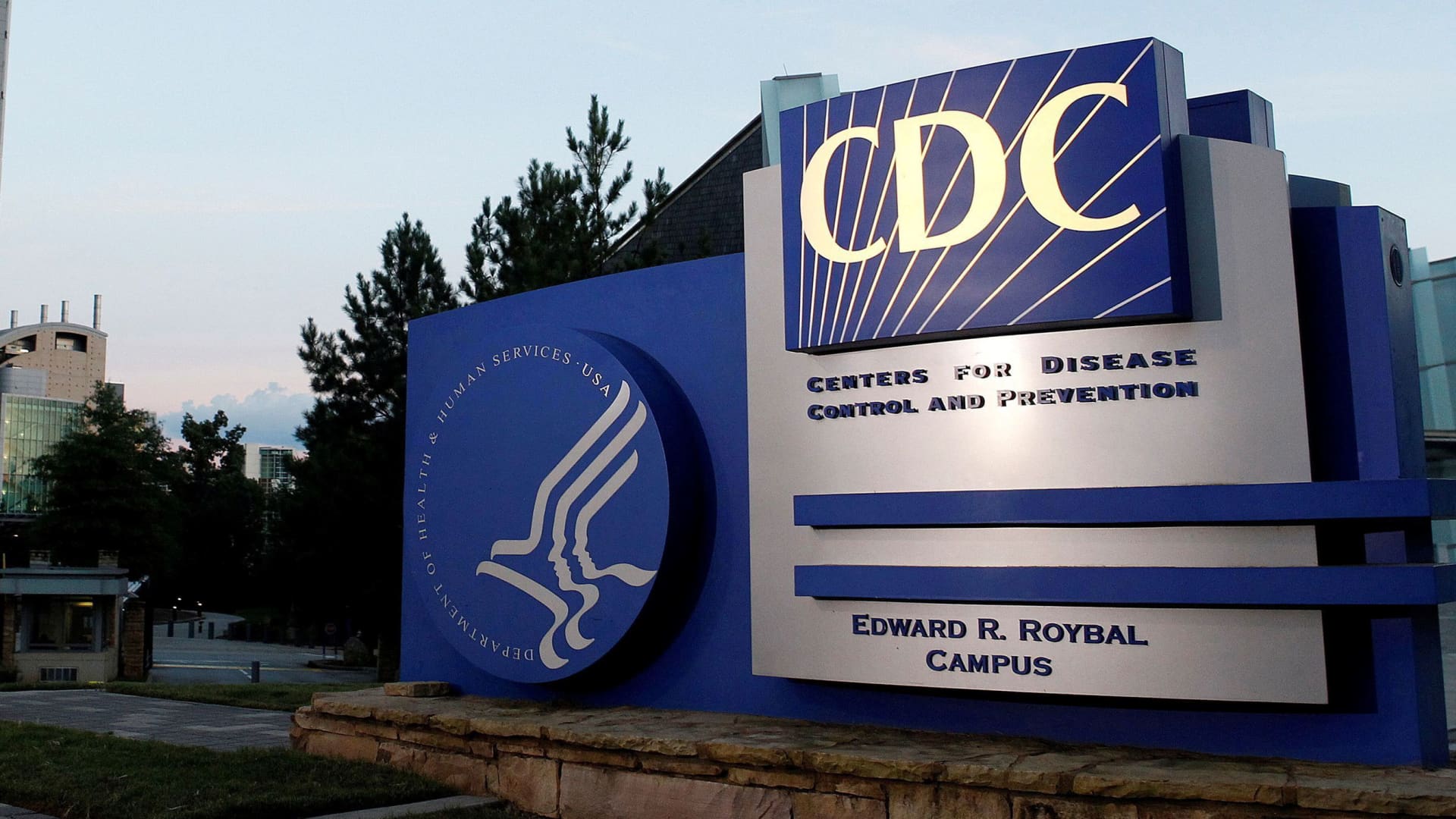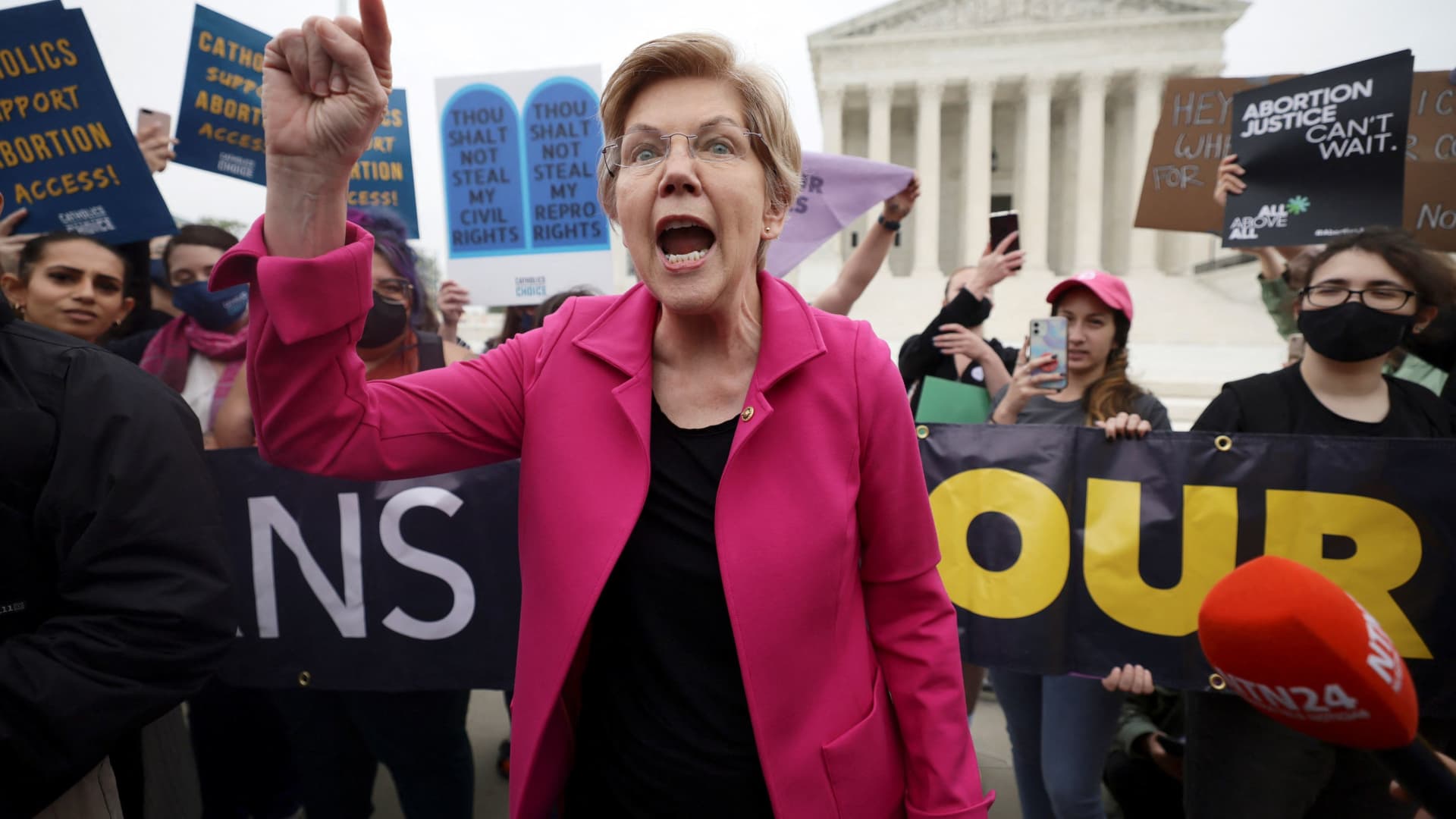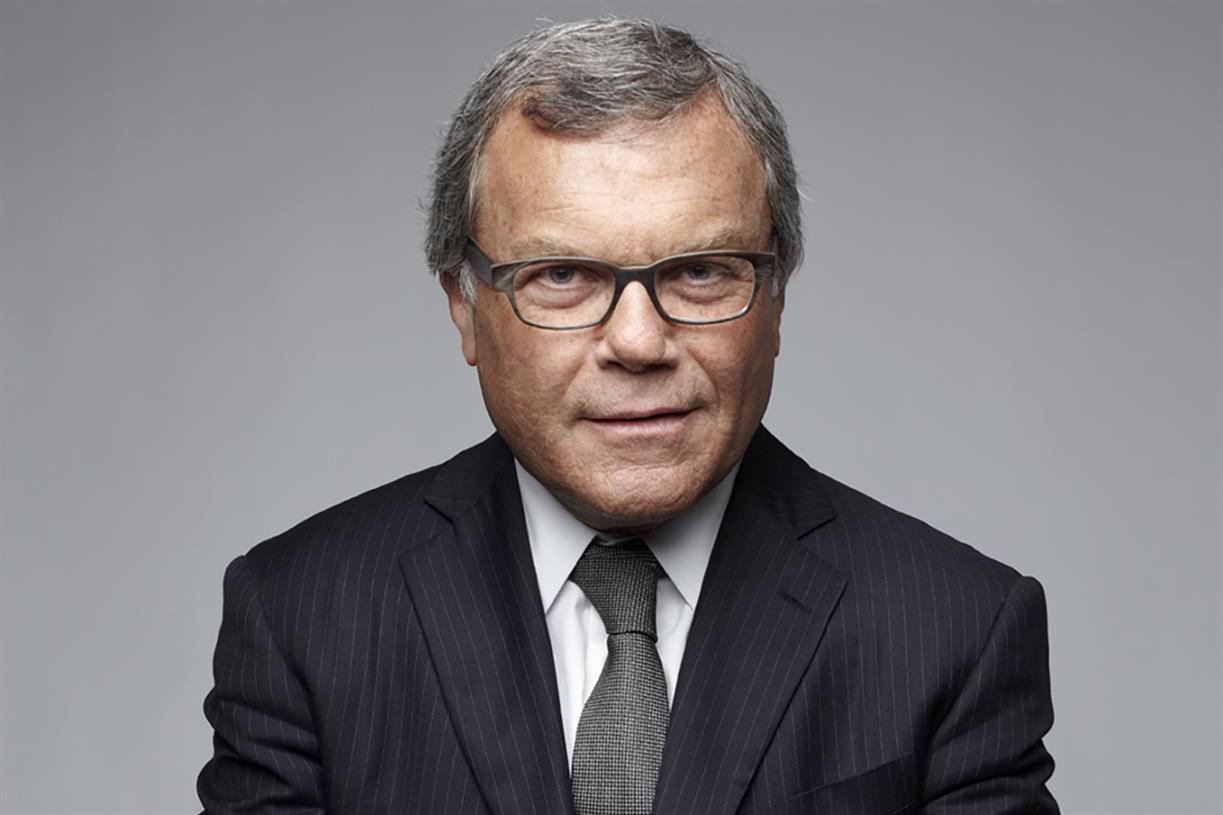Biden to visit U.S.-Mexico border city of El Paso on Sunday as White House rolls out new immigration rules
The trip details came as the administration announced new border enforcement measures related to the anticipated lifting of the Covid-era Title 42 policy.
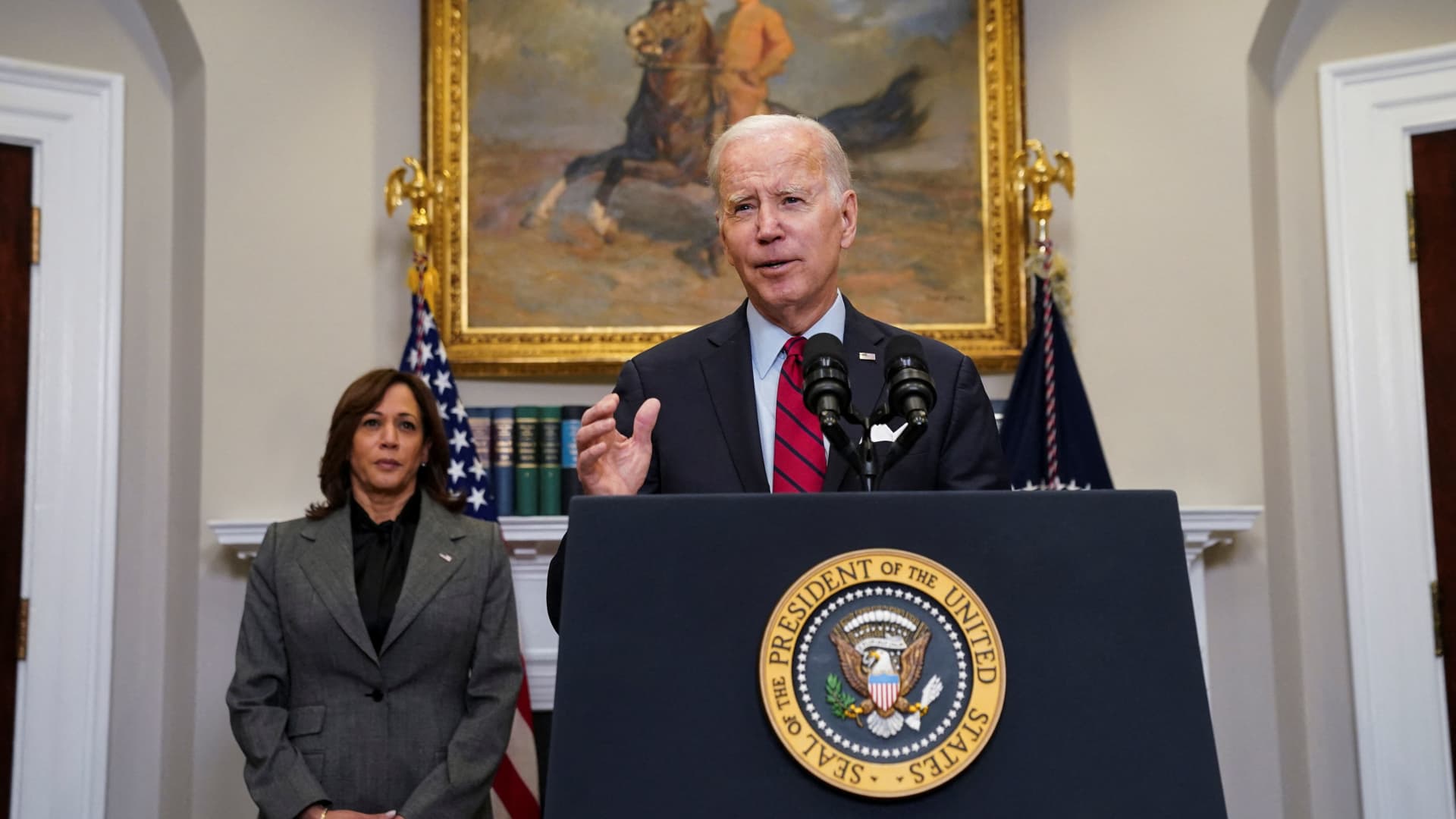
U.S. President Joe Biden is flanked by Vice President Kamala Harris as he speaks about U.S.-Mexico border security and enforcement, in the Roosevelt Room at the White House in Washington, U.S., January 5, 2023.
Kevin Lamarque | Reuters
U.S. President Joe Biden will visit the southern border city of El Paso, Texas, on Sunday to meet with local officials and address enforcement operations on the U.S.-Mexico border, senior administration officials said Thursday.
The announcement came in a briefing with reporters about new immigration rules the administration said will expand legal pathways to the U.S. for migrants from Cuba, Haiti and Nicaragua while imposing new punishments for illegal entry.
The details of the trip were revealed a day after Biden said he planned to visit the border for the first time, nearly two years after taking office. His absence has drawn constant attacks from Republicans critical of the administration's border policies, blaming the White House for a roiling migrant crisis.
"As long as America is the land of freedom and opportunity, people are going to try to come here," Biden said at the White House on Thursday morning. He was accompanied by Vice President Kamala Harris, whom Biden previously tasked with handling immigration issues.
"The actions we're announcing today will make things better, but will not fix the border problem completely. There's more that has to be done," Biden said, calling on Congress to pass more comprehensive immigration legislation.
Biden is set to travel to Mexico City on Monday and Tuesday to attend the North American Leaders' Summit.
Ahead of the trip, officials announced several new enforcement actions that are aimed to account for the eventual lifting of Title 42, the coronavirus-era measure used to expel many migrants on public health grounds.
The actions include extending a migrant parole process to allow entry and temporary work authorization for up to 30,000 people per month from Venezuela, Cuba, Haiti and Nicaragua. The policy, which was previously available only to Venezuelan nationals, has significantly reduced the number of people attempting to enter the U.S. unlawfully, the White House said.
Those individuals, who have eligible sponsors and pass background checks, can come to the U.S. for up to two years, the officials said. But those who cross the Panama, Mexico or U.S. borders without proper authorization will be ineligible and could be expelled to Mexico, which will accept up to 30,000 people per month from those four countries.
The new rules are intended to convince more would-be migrants to apply to the U.S. from where they are, rather than making a long and dangerous trek to the border.
The Department of Homeland Security is also increasing its use of the expedited removal process for people attempting to enter the U.S. improperly, the officials said. Those people will be sent back to their country of origin and banned from reentry for five years.
The Biden administration also shared plans to boost resources for border enforcement, including scaling up DHS' transportation capabilities and increasing asylum officers and judges to review cases.
More than 2 million people have been deported at the southern border under Title 42 since the policy went into effect in 2020. Last month, the U.S. Supreme Court voted 5-4 to keep the policy in place for now and hear arguments about it from Republican-led states.
"Title 42 or not, the border is not open," Homeland Security Secretary Alejandro Mayorkas said at a press briefing later Thursday.

 ValVades
ValVades 







